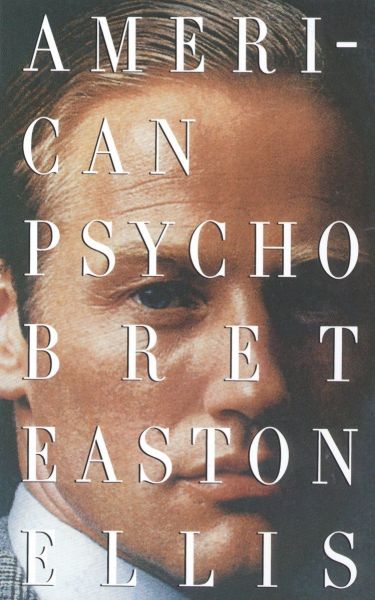The Horrible Bret Easton Ellis
The Horrible Bret Easton Ellis
I found this article in the Sunday edition of Die Welt during my trip to Germany. The figure in the photo, Bret Easton Ellis, has published a number of celebrated novels and other works, but he is hardly your typical writer. In the photo, Ellis stares at the camera--and basically at the wider public--with controlled disdain. For the potential reader who sees it, the malevolent hauteur in his expression could not give his novels a better introduction. Just the subject matter and the presentation give me the creeps, so I have never tried to read one, nor have I seen any of the half-dozen or so movies derived from them.
Ellis's breakout novel American Psycho perplexes me. Why have thousands of readers bothered with a novel about a serial killer who narrates his torturing and killing women orgasmically? I find his celebrity-status incomprehensible. Who in the hell wants to read this shit? Has anyone broken down the demographics of his readership? Are his readers young White women--the serial-killer's erstwhile victims? Has anyone broached the women readers' thoughts about stories of this kind?
It reminds me of the "Violence-Passion Surrogate" in Aldous Huxley's novel Brave New World. The rulers of the futuristic society have devised an interactive TV and chemical-conditioning called "The Violence-Passion Surrogate." They bring the TV-viewer's fantasies closer to reality than ever before. "It's the physiological equivalent of fear and rage," says the media-controller, "All the tonic effects of murdering Desdemona, and being murdered by Othello, without the inconveniences."
Ellis employs a little Violence-Passion Surrogate himself, inasmuch as he displaces his own feelings toward women onto a Republican Yuppie stockbroker. The Republican stockbroker hangs out with his buddies in a rich, corrupt world of drugs, narcissism, and easy women by day, then murders women by night. Ellis's first-person narrative (Ellis's alter-ego) gives the novel its evil eloquence, as the killer relishes each terrible act of torture and murder. Ellis fantasizes over the killings but distances himself from the acts by pinning the deeds on a wealthy, corrupt Republican.
In the interview with Die Welt, Ellis states that, "I am not in the least interested in telling a consistent, believable, or a directionally-defined story," in other words a story with a theme. "For me, the strength of the novel is pure feeling (pures Gefühl). I attach a lot of importance to the impact of the style, not to the quality of the story." He says, in effect, that his readers enjoy the cheap thrills, nothing more. In other words, they get off on the Violence-Passion Surrogate. But obviously, Ellis gives a political orientation to his stories.
I remember a poem from college by Robert Graves that begins, "There is one story and one story only, that will prove worth your telling." If he is right, that sort of limits the ability of fiction-writers to create anything original; so why not let readers read only for sensation? My editor who has helped me with all my writing says that there are, in fact, five stories that will prove worth your telling, perhaps proving Graves wrong. Maybe the thousands of fiction-writers have exhausted the number of variations on available themes.
I don't think either of them are right. Life's stories come to us from the endless variety of human experiences, The wise and curious amongst us can learn plenty from them. Rather than go for "pure feeling", readers should do as the British novelist George Eliot suggests (real name, Mary Ann Evans), to read for "deep impressions."


